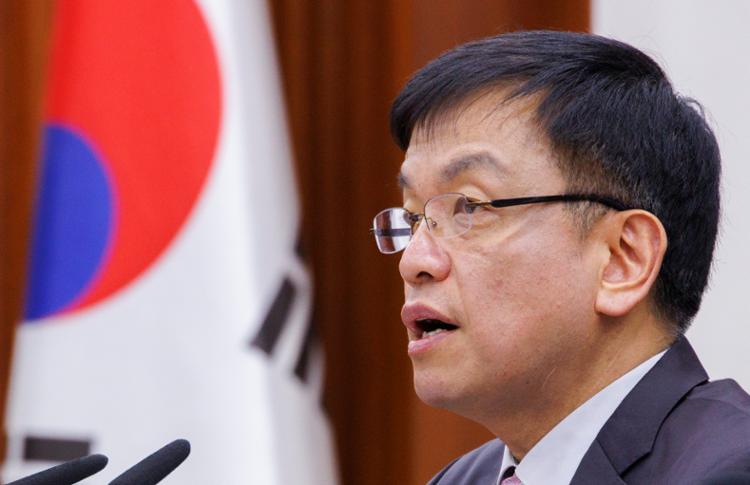South Korea’s lawmakers voted on Friday to impeach Acting President Han Duck-soo, marking the second impeachment of a national leader in just two weeks.
Finance Minister Choi Sang-mok has now stepped into the role of acting president, tasked with navigating the country through escalating political and economic turmoil.
The National Assembly voted decisively, with 192 of 300 lawmakers supporting Han’s impeachment, surpassing the simple majority threshold required.
The vote followed heated protests from the ruling People Power Party, whose members accused the opposition of abusing power and called for the resignation of Speaker Woo Won-shik. Many ruling party MPs boycotted the session, adding to the tension.
Han, who assumed the acting presidency after President Yoon Suk Yeol’s suspension on December 14, faced criticism for allegedly delaying the impeachment process against Yoon.

Opposition lawmakers accused him of blocking the appointment of three Constitutional Court judges critical to deciding Yoon’s fate. In response to his removal, Han stated he respected the Assembly’s decision and would step aside to avoid further chaos.
Choi Sang-mok, 61, now takes on the unprecedented task of succeeding an impeached acting president.
A seasoned economic technocrat with over three decades of service at the finance ministry, Choi has vowed to focus on stabilising state affairs and calming financial markets.
Speaking after the vote, he pledged “an all-out effort to overcome the crisis” and has already engaged international partners, including US Treasury Secretary Janet Yellen, to reassure allies and investors.
The turmoil has had immediate economic consequences, with the Korean won plunging to its lowest level against the dollar since 2009.
The Constitutional Court, which has 180 days to rule on Yoon’s impeachment, remains a key player in determining South Korea’s political future.
If Yoon is permanently removed, presidential elections will follow within 60 days, further extending the uncertainty.


